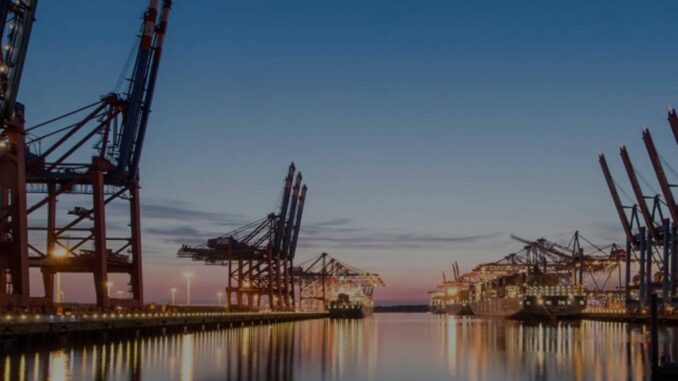
THE Supply Chain Resilience Taskforce presented the study “Port Call Optimization Through Data Quality” at the IAPH World Ports Conference on October 9 in Hamburg.
The study underscores the urgent need for implementing the International Maritime Organization (IMO) Compendium on Facilitation and Electronic Business in the maritime sector, highlighting the importance of harmonizing communication and electronically exchanging operational data for port calls.
The report offers essential findings and insights drawn from in-depth interviews with port authorities and maritime stakeholders regarding the implementation of Just-in-Time (JIT) Arrival best practices.
The study outlines steps to enhance data quality within the context of port call optimization, emphasizing the implications and benefits of these practices.
In 2023, the International Association of Ports and Harbors (IAPH) collaborated with chainPORT, the Digital Container Shipping Association (DCSA), the Terminal Industry Committee 4.0 (TIC 4.0), and the International Port Community Systems Association (IPCSA) to form the Supply Chain Resilience Taskforce.
The initiative responds to cargo owners’ demands for improved data visibility and aims to enhance maritime supply resilience through collaboration among stakeholders in the maritime supply chain. A primary challenge for the industry is improving data quality, with JIT port calls as the ultimate goal.
Participating organizations emphasized the study’s significance in driving decarbonization and operational efficiency in maritime shipping. They noted that when JIT Arrival Guidelines are executed with high-quality data, they can foster better communication among stakeholders during port call processes.
Additionally, the study records lessons learned from pioneering ports that have successfully implemented optimized port call processes using standardized data.
This collaboration among IAPH and other associations aims to provide valuable insights into optimizing maritime supply chain processes through digital transformation.
The report highlights the role of port community systems in achieving supply chain excellence, underscoring their importance in fostering a more resilient and efficient maritime industry.
Initiated by the Hamburg Port Authority and the Port of Los Angeles, chainPORT is a cross-national partnership among leading ports that promotes the sharing of innovations and best practices.
Founded in 1955, IAPH comprises 189 port authorities and 162 port-related businesses, leading global initiatives on decarbonization, energy transition, risk management and digitalization in the maritime transport chain, collectively handling over one-third of the world’s sea-borne trade and more than 60 percent of global container traffic.


Be the first to comment